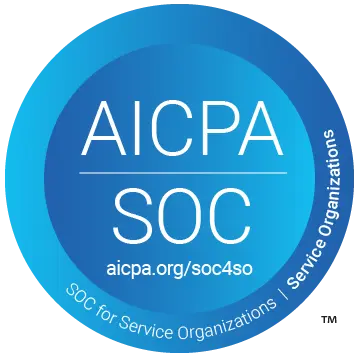2 min read
Sagiss completes MSP Verify certification with SOC 2 Type 2 audit
Published: September 12, 2019 Updated: July 19, 2024

We're proud to announce Sagiss has earned its Soc 2 Type 2 Certification from the MSP Alliance!
Irving, Texas September 10, 2019 — Sagiss today announced that it has successfully completed the MSPAlliance’s MSP Cloud Verify Program (MSPCV) certification and SOC 2 Type 2. The MSPCV is based on the 10 control objectives of the Unified Certification Standard (UCS) for Cloud & MSPs and is the oldest certification program for cloud computing and managed services providers. Sagiss' SOC 2 Type 2 audit was based on the UCS as well as the Trust Services Criteria for Security and the Additional Criteria for Availability and Confidentiality (TSP section 100A – 2016).
The MSPCV was the first of its kind created specifically for the managed services and cloud industry. Every certification comes with a written report with the entire process documented, validated and signed by a 3rd party accounting firm. The MSPCV has been reviewed by governmental agencies and regulatory bodies across the globe and is used and accepted in 5 continents around the world.
"The MSPCV certification is a rigorous certification process that benchmarks and verifies the quality of the company providing cloud and/or managed services,” said Charles Weaver, MSPAlliance CEO. "We are very proud to have Sagiss as a member of this elite community of cloud and MSPs.”
MSP Verify Program
The UCS consists of 10 control objectives and underlying controls that constitute crucial building blocks of a successful managed services (and cloud computing) practice. Once the provider’s organization has completed all MSPCV documentation on all applicable control objectives (with the assistance of MSPAlliance's readiness assessments, gap analysis, helpful templates and consulting), the results are then examined by an independent third-party accounting firm for verification and signing of a public facing report.
As with any other substantive certification of this type, the MSPCV certification must be renewed annually. The MSPCV was the first certification created specifically for the managed services and cloud industry. The MSPCV has been reviewed by governmental agencies and regulatory bodies across the globe and is used and accepted in 5 continents around the world. Customers who select a company that is part of the MSPCV can also rest assured that their IT solution provider has met and exceeded the following standards dealing with:
● Objective 1: Governance
● Objective 2: Policies and Procedures
● Objective 3: Confidentiality and Privacy
● Objective 4: Change Management
● Objective 5: Service Operations Management
● Objective 6: Information Security
● Objective 7: Data Management
● Objective 8: Physical Security
● Objective 9: Billing and Reporting
● Objective 10: Corporate Health
The MSPCV certification report is signed by a third-party accounting firm.
About MSPAlliance
MSPAlliance® is a global industry association and accrediting body for the Cyber Security, Cloud
Computing and Managed Services Provider (MSP) industry. Established in 2000 with the objective of helping MSPs become better MSPs. Today, MSPAlliance has more than 30,000 cloud computing and manage service provider corporate members across the globe and works in a collaborative effort to assist its members, along with foreign and domestic governments, on creating standards, setting policies and establishing best practices.
 Karl Springer
Karl Springer